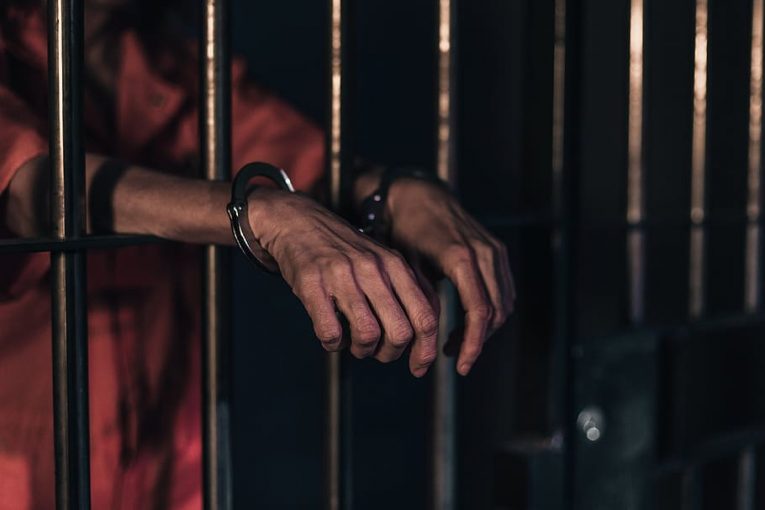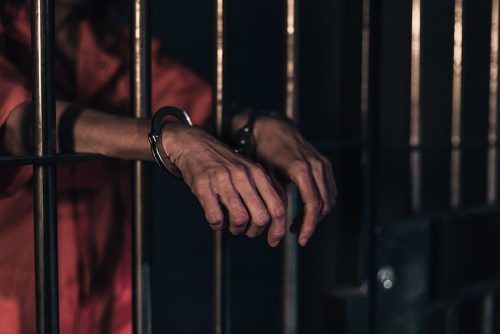

By The Vanguard Staff
BATON ROUGE, LA – Lawyers for 56 death row prisoners in Louisiana Tuesday strongly criticized plans by East Baton Rouge Parish District Attorney Hillar Moore to sue to block the State Pardon Board from hearing the death row prisoners’ “properly filed applications, citing ‘concerns’ about the ‘expedited’ capital clemency procedures (used) in every capital case without challenge since the 1980s.”
“This lawsuit is just another baseless attempt to block the Pardon Board and Gov. Edwards from taking a close look at Louisiana’s broken death penalty system. Mr. Moore is well aware that these cases involve serious problems, including innocence, intellectual disability, serious mental illness, racism, youth, and egregious prosecutorial misconduct. The Board should proceed with hearings, and the governor will then be able to consider any recommendations of clemency the Board makes,” said Cecelia Kappel, Executive Director, Louisiana Capital Appeals Project.
Claiming “extreme racial bias and many serious problems in Louisiana’s death penalty system,” 56 death row incarcerated in June filed clemency applications, asking the Pardon Board and Gov. Edwards to commute their sentences to life imprisonment without possibility of parole.
The attorneys for the prisoners provided the Pardon Board with a letter (here) explaining that the prisoners are eligible to pursue clemency at this time.
According to defense lawyers involved in the cases, “there are 56 men and one woman on Louisiana’s death row. Nearly three-quarters of them are people of color (67 percent are Black), and 40 percent are individuals with documented intellectual disability who should be constitutionally protected against the death penalty.”
The defense team have charged the cases “reflect the racial bias, geographic concentration, prosecutorial overreach, and other serious flaws that have led a growing number of people across the political spectrum to recognize that capital punishment is a failed public policy.”
Noting the “racial disparities,” the defense said, “63 percent of Louisiana’s death row prisoners were convicted of killing a white person; only two white people are under a death sentence in Louisiana for killing a Black person.”
Lawyers also note 27 prisoners on Louisiana’s death row were 25 or younger at the time of their crime; 13 of those prisoners were 21 or younger, two parishes in Louisiana account for 42 percent of the state’s death sentences, and nearly three-quarters of Louisiana’s death sentences were imposed in just seven of the state’s 64 parishes.
The defense also claim, “Many Louisiana death row inmates have substantial claims that their convictions and/or sentences were obtained in cases where prosecutors withheld favorable evidence, relied on false testimony, and/or relied on ‘junk science,’ (and) “a significant majority of Louisiana death row prisoners have been diagnosed with mental illness, intellectual disability, or brain damage; a majority also experienced horrific trauma during their childhoods.”
“Many of the cases of the Black people on Louisiana’s death row carried racial overtones. There are Black men currently on the row who were sentenced to death by all-white juries, and there is evidence that jurors in some cases openly discussed race during their deliberations.”
And, they charge, “Louisiana’s death row population also reflects the well-documented reality that those who are convicted of killing a white person are significantly more likely to be sentenced to death than are those who kill Black people. Today, there are only two white people under a death sentence for killing Black victims. At the same time, 63 percent of the people on Louisiana’s death row (36/57) were convicted of killing a white person.
“No white person has ever been executed for killing a Black person in Louisiana. Twenty-four of the 28 people executed since 1976, including all four of those executed since 1999, were convicted of killing a white victim.”
The defense team also noted that, “Since 1999, nine innocent people have been exonerated from Louisiana’s death row…Louisiana’s death penalty system is woefully error-prone, with an 83 percent reversal rate in capital cases since 1976. Since 1999, when Louisiana death row prisoners finally gained a right to counsel in post-conviction proceedings, nine people have been exonerated following wrongful capital convictions and death sentences.”
Rev. Charles D. “Dan” Krutz said, “We stand by Gov/ Edwards and the Pardons Board as they take this opportunity to examine Louisiana’s broken death penalty system. The very real risk of executing an innocent person, the stark racial disparities, and the number of people with evidence of intellectual disability, brain damage, and severe mental illness all warrant giving careful consideration to the clemency petitions filed by those on death row.
“The lives of the 56 applicants who are applying for clemency have changed during their incarceration, and their pleas for clemency should be heard. Faith and forgiveness have an essential role to play in this matter. Hate and vengeance must be given up for healing to occur for everyone. Please allow the clemency process to go forward. It is the right and just thing to do.”
And, Rev. Alexis Anderson said, “It is difficult to imagine why DA Hillar Moore is attempting to block the Board and the governor from considering these cases and the system that produced them. Those systemic flaws are starkly illustrated by the fact that every person on death row from East Baton Rouge Parish is African American. I am a woman of faith, an educator, and an advocate and that leads me to believe there are better ways the DA’s office can use their resources.”
The defense also listed the following points:
- “The racial disparity in Louisiana’s death penalty is reflected in its wrongful capital convictions. Six of the nine innocent people exonerated from death row are Black, while three are white. Seven of the nine were falsely convicted of killing white victims.
- “A shocking number of people with intellectual disability remain on death row in Louisiana despite evidence proving their execution would violate the Constitution.
- “The United States Supreme Court has made clear that the Constitution forbids the execution of people with intellectual disability. This rule recognizes that people with intellectual disability lack the moral culpability required for capital punishment, and that they are uniquely vulnerable to being manipulated by accomplices or pressured into false confessions.
- “And yet, there are at least 23 people under a death sentence in Louisiana – fully 40 percent of the state’s death row population – who have a documented intellectual disability. In this respect as well, Louisiana imposes capital punishment in a racially skewed manner. Nineteen of these 23 prisoners with intellectual disability are Black, and four are white.
- “Louisiana has sentenced a significant number of young Black men to death despite a growing body of scientific evidence regarding late-adolescent brain development.
- “The Supreme Court has acknowledged that scientific advancements regarding late-adolescent brain development must change our understanding of young offenders’ culpability, particularly that of young men. Nevertheless, 27 of the 57 people on Louisiana’s death row were 25 or younger at the time of the crime, and nearly half of those were 21 or under.
- “Moreover, 22 of those 27 prisoners are Black and one is Hispanic; only four are white. Even more disturbing, 14 prisoners in this young-offender group have documented intellectual disability, and 13 of those are Black. This disparity reflects the criminal justice system’s entrenched unwillingness to give young Black men, including those with intellectual disability, the kind of second chances that younger white offenders often receive.
- “Louisiana’s death sentences are concentrated in a small number of high-use parishes. Louisiana’s death penalty is heavily concentrated in just two parishes, Caddo and East Baton Rouge, which account for 42 percent of the state’s current death sentences. Moreover, just seven of Louisiana’s 64 parishes (Caddo, East Baton Rouge, Jefferson, Ouachita, Calcasieu, Orleans, and Rapides) account for 70 percent of the State’s current death sentences and are the only parishes that have imposed three or more active death sentences.“Significantly, there has not been a new death sentence in East Baton Rouge Parish since 2015, or in Caddo Parish since 2013. Louisiana’s death row thus is a relic of a past era of prosecutorial overreach in capital cases.“The seven high-use parishes have overwhelmingly imposed death sentences on Black people. Eleven of the 13 death sentences from Caddo Parish and all 11 of those from East Baton Rouge Parish were imposed on Black people. All four prisoners sentenced to death from Jefferson Parish are people of color (three Black men and one Hispanic man), and all three death row prisoners sentenced from Orleans Parish are Black. Together, the seven high-use parishes prosecuted 31 of the 38 Black people on Louisiana’s death row.
- “Prosecutors in Louisiana have withheld exculpatory evidence, relied on false testimony, and used junk science to secure death sentences.
- “The job of a prosecutor is to serve the people and do justice. But, as the significant number of exonerations from Louisiana’s death row indicates, this principle is often subordinated to a “win at any cost” mentality. Many of the prisoners on Louisiana’s death row today were convicted and sentenced in cases where prosecutors withheld favorable evidence, presented false testimony – often of unreliable jailhouse snitches – or relied on flawed and misleading forensic evidence.
- “A majority of the people on Louisiana’s death row (39/57) have been diagnosed with serious mental illness and/or brain damage. A similar number are known to have suffered extensive childhood trauma, including horrific and prolonged physical, emotional and sexual abuse, poverty, neglect, domestic and community violence and more. These individuals are not the ‘worst of the worst.’ They are vulnerable people who were failed by the caregivers and institutions intended to protect them.
- “The true rate of mental illness, brain damage and extreme childhood trauma on Louisiana’s death row is likely even higher than these numbers indicate. Many prisoners have never had comprehensive mental health, neurological, trauma or social history evaluations because their trial lawyers failed to do that all-important work and they are still waiting for the overburdened state post-conviction defense system to investigate their cases.”





